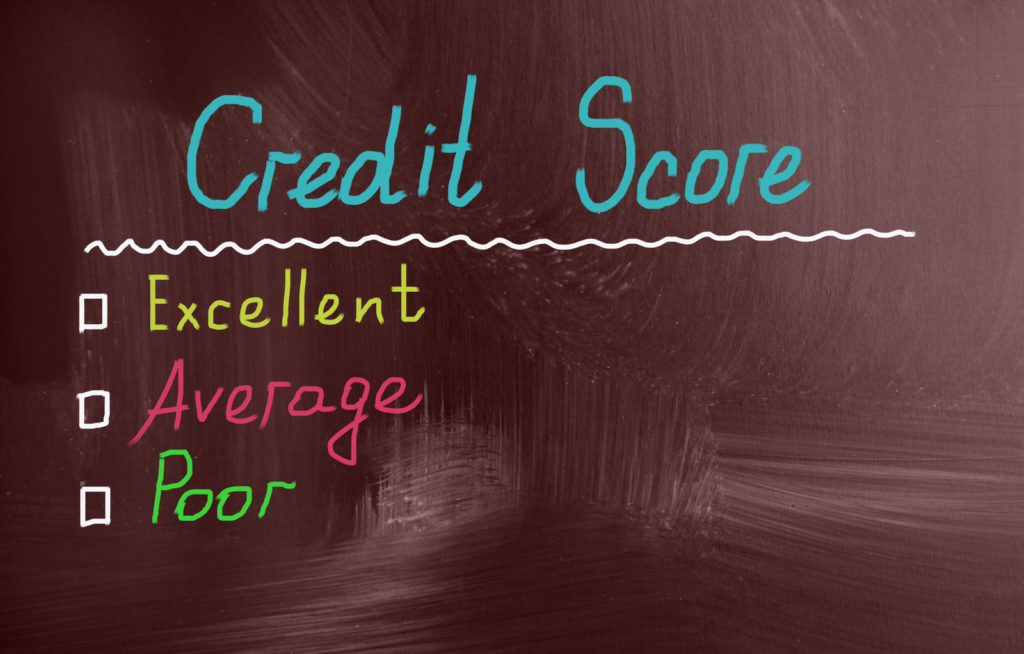
Buying a new house is a big step. It means a new chapter in your life. You put in a lot of work to make sure you find the perfect home and that you have a big enough down payment. One of the most critical pieces of the home buying process is your credit score. If your credit score isn’t high enough, it can throw off all the plans for your dream home.
So what credit score is needed to buy a house? The answer isn’t as straightforward as some might think. Different mortgage products will require different credit scores. Let’s walk through some of the basics so you can understand what credit score you might need.
What is a credit score?
An individual’s credit score is a three digit number that helps paint a complete financial picture. It can range anywhere from 350 to 850 and is determined by several different factors. Someone with a lower credit score represents a higher risk, while a high credit score can mean a lower risk.
A credit score is determined by five main categories. Each category is weighted a little different.
- Payment history (35 percent) – The largest and most important piece is your payment history. Have you been late paying bills? Do you have delinquencies that have been reported? If so, then it can have a significant impact on your credit score.
- Amounts owed (30 percent) – How much money do you owe compared to your available credit. Your goal is to utilize as little of your available credit each month as possible.
- Length of credit history (15 percent) – Length of credit is another factor that is considered. The longer your average length of credit, the better it is for your overall score.
- Types of credit used (10 percent) – Having a variety of credit types is also something to consider. It’s important to have both revolving and installment accounts open in your name.
- New credit (10 percent) – Each time you open a new credit account and a hard inquiry is done on your account, there will be an impact. The impact is small and recovered quickly.
As you can see your payment history and the amount of credit you are using are the most important factors. Each of these can have a significant impact, both good and bad, on your credit score. By making sure you pay your bills on time and avoid maxing out your credit cards, you will be well on your way to a great credit score.
What credit score is needed to buy a house?
Now that you have an understanding of exactly what a credit score is, let’s talk about what credit score is needed to buy a house. Depending on the product that you are looking to secure, the requirements are going to be different. A conventional loan will have a different requirement than an FHA loan. Let’s take a look at some of the most common loan types to see what credit scores they each require.
Conventional loans (Freddie Mac or Fannie Mae)
Government Sponsored Enterprises Freddie Mac and Fannie Mae purchase mortgage loans from lenders. This provides lenders with the capital to continue offering loans to homebuyers. Both Freddie Mac and Fannie Mae have a credit score requirement of 620, which means most lenders are going to have the same requirements from their borrowers. However, many will actually require a score of 650 or higher. Just keep in mind that a lower credit score will usually mean you’ll need to come up with a larger down payment.
Federal Housing Administration (FHA) Loans
If you use an FHA-approved lender, you can get approved for a home loan with a credit score as low as 500. However, a 10 percent downpayment will be required at closing. If you have a credit score of 580 or higher, the down payment requirement drops to just 3.5 percent.
FHA loans require Mortgage Insurance Premiums paid on all loans. This is similar to private mortgage insurance, except it will continue to be required until you refinance or pay off the loan.
Veterans Affairs (VA) Loans
VA loans have no credit score requirements. The loans are fully backed by the Veterans Affairs department, which means the lenders themselves are not assuming any risk. It is however somewhat difficult to receive a VA loan. Borrowers need to meet certain qualifications to be eligible.
While there are many different mortgage loan options available, these are the three most popular. As you can see they each have different requirements for eligibility. While getting a mortgage with a credit score below 600 is possible, it’s not easy to do. If you are looking for a conventional loan, having a credit score of 650 or higher will increase your chances of approval.
What interest rate can I get with my credit score?
There are a lot of factors that go into whether or not a lender will approve a borrower for a loan. Once approved for a mortgage, your credit score will play a large role in the interest rate you receive. The higher your score, the better the rate. As an example, let’s consider a well qualified borrower that plans to use a downpayment of at least 20%. Plus, their anticipated housing payment is less than 30% of their total income. They also have plenty of money in the bank to cover emergencies. For this person, here is how their FICO score would affect mortgage rates.
- Excellent credit (800-850) – With an excellent credit score you would receive the best possible interest rates
- Very Good credit (740-799) – There will be a small change in the interest rate, but usually around 0.25%.
- Good credit (670-739) – There will likely be a 0.50% increase from the best rates offered.
- Fair credit (580-669) – Depending on where you fall within this range, you could be looking at an interest rate as much a four percent higher than someone with an excellent credit score.
- Poor credit (579 and lower) – If you have poor credit and are approved for a mortgage you will be paying very high rates.
How to Fix Your Credit
If your credit isn’t as high as you’d like and you’re not receiving the best rates, then it’s time to learn how to fix your credit. Not really sure where to start? Consider a company like CreditRepair.com. Their whole mission is to help you develop a healthier relationship with your credit score. This will lead to lower interest rates and the ability to achieve your dreams.

